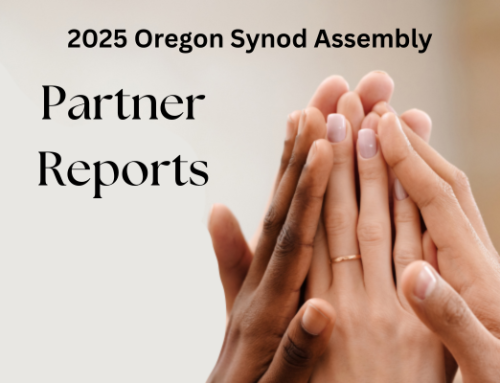
2020 marks the 50th anniversary of the ordination of women in the ELCA, the 40th anniversary of women of color, and the 10th anniversary of LGBTQ+ siblings.
It’s an incredibly important marker for the ELCA, though it is only the beginning for the Church, as women are still denied ordination across the denominations and hold less than 15% of the leadership positions in the worldwide church! Therefore, in 2020, we in the Oregon Synod will highlight one woman from Christian history every week. Some you may know, others you may not, but all worthy of our respect and gratitude.
#37: Eleanor Roosevelt
In 1939, First Lady Eleanor Roosevelt resigned from the Daughters of the American Revolution because they refused to allow Marian Anderson (a Black singer) to perform at Constitution Hall in Washington. Eleanor then secured the Lincoln Memorial for the concert, which was attended by 75,000 people. In 1940, during the start of WWII, she wrote The Moral Basis of Democracy, in which she advised Americans to choose a “Christ-like way of living” over fascism. She was a devoted Christian who focused on two key scriptural verses: “What does God require of me?” (Micah 6:8) and “Whatever you do to the least of these, you do to me” (Matthew 25:40). She was public with her faith; she wrote thousands of columns, many of which addressed issues of faith, prayer, and the Bible. She always maintained a special appreciation for the Eucharist, where she was not a wife, a first lady, or a UN delegate, but just another Christian. Eleanor repeatedly said that it was not a question of what one believed but how one lived one’s beliefs. Throughout her life, she championed the rights of women, Black Americans, Jewish Americans, children, the poor, immigrants, and other marginalized groups. When the war was over, President Truman appointed her to the first delegation to the newly formed United Nations. She went on to chair the Human Rights Committee. She led the drafting of the Universal Declaration of Human Rights. It was adopted by the General Assembly in 1948 after her stirring speech, “The Struggle for Human Rights.”




